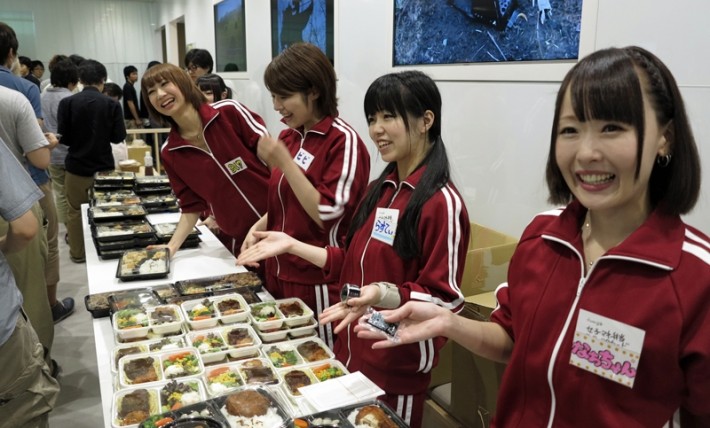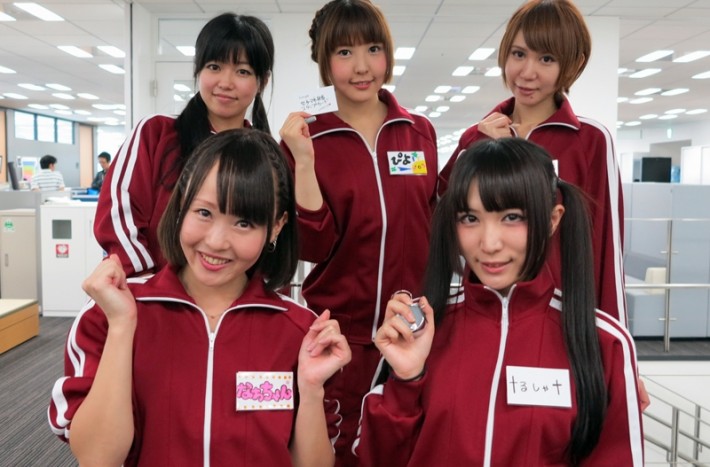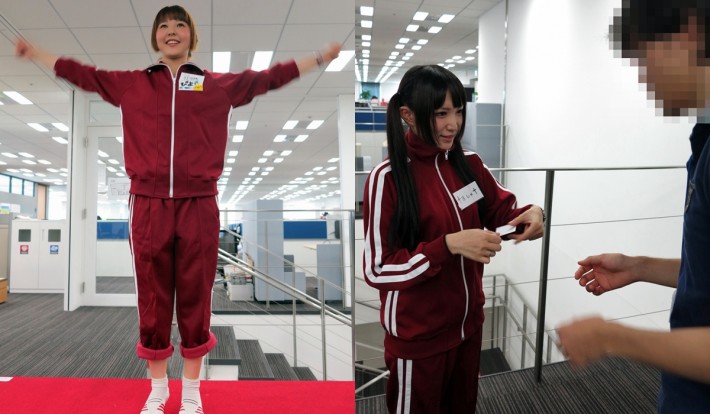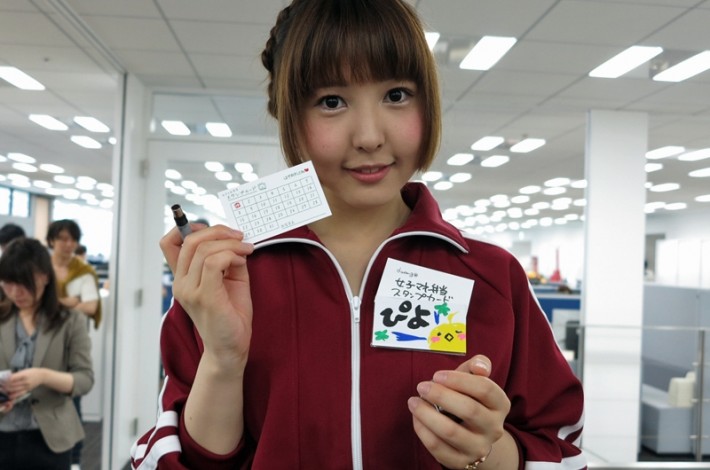What do you imagine when you hear the word 'manager'? I'd guess that most of you would probably think of your bosses at work. Does hearing the word coincide with a negative image or feeling? Well, when Japanese people hear the word 'manager', things are quite different. In fact, there is nothing negative about it, especially from a guy's point of view.
Female Managers for Engineers

On September 2nd, a Japanese company called DWANGO Co., Ltd. implemented a new project called '女子マネ弁当 (Joshi-Mane Bento)', which involved placing many female 'managers' in the office to motivate the company's late-arriving male engineers, who tend to show up to work in the afternoon, to come in earlier. 女子マネ (joshi-mane) is an abbreviation of 女子マネージャー (joshi-manager) meaning female managers. 弁当 (bento), as you probably already know, is a single-portion takeout or home-packed meal common in Japanese cuisine.
So, DWANGO hired 15 female managers to come in and motivate its workers. Surprising? Sad? Do you think it would be an effective form of motivation? It's a difficult assessment to make. I know that if I heard there were going to be 15 more managers at my workplace, 'motivated' would not be the operative word. However, it seems that the new system worked out very well there. Keep in mind that they are managers, not bosses. They're there to help manage you, not boss you around.
What are Joshi-Managers?
If you say 'manager' in Japan, it often indicates a 'towel boy' (aka waterboy) rather than an 'office manager'. Towel boys are the kids who hang out at the sidelines with bottles of water and hand towels to the athletes at sports games. So if you say 'joshi-mane/joshi-manager', it is generally referring to a female manager who takes care of sports players like towel boys do.
They also take care of equipment, sports team records, and more. Now, you can imagine that a lot of boys develop crushes on their joshi-mane, possibly because they are so helpful and supportive of all the players on the team during the school year.
Joshi-mane has taken an especially important role in Japanese school culture. In fact, you find them in a lot of Japanese manga comics, novels, movies, and dramas. My favorite one is Minami Asakura, who is the heroine of a Japanese high school baseball manga called "Touch". She's a Meisei baseball team manager.
There is also another famous baseball team manager named Minami in a best-selling book by the title of "Moshi Dora" that is an abbreviationn of the title: もし高校野球の女子マネージャーがドラッカーのマネージメントを読んだら (Moshi Kokoyakyuno Jyoshi Manejyaga Drucker no Management wo Yondara / If the Girl Manager of a High School Baseball Team Read Drucker's 'The Practice of Management'). The novel follows Minami as she uses Peter Drucker's famous tome on management to guide the team to success.
DWANGO and Joshi-Mane Sensation

The Dial-up Wide-Area Network Game Operation, better known by the acronym DWANGO was an early online American game service. It launched in 1994, but its operation and all its services stopped in October 1998. There is one remaining division still in operation in Japan which continues to do well today. Its subsidiaries include Niwango, which runs the popular video sharing website in Japan called ニコニコ動画 (Nico Nico Douga).
It's a telecommunications and media company, so there are a lot of engineers working there. Historically, men have been known to vastly outnumber women in the field of engineering. Thus, it won't surprise you that the large majority of this company's engineers were male, which is why it's easy to see how the resolution to the following issue was reached. Engineers tend to work late into the night and it often causes them to be late for work in the morning.

Nobuo Kawakami, the chairman of DWANGO, who's also a Studio Ghibli producer, was contemplating how he could resolve this issue. One day, he got an idea: If the engineers were given the option of having cute girls in maid costumes hand out bento boxes to them, they might come into work on time. This experiment was more successful than Kawakami thought it would be. He then set out to improve his system and decided to hire cute female managers (joshi-mane) next. Surely, he believed, the engineers would come to work on time and work even harder.
How the 'Joshi-Mane Bento' System Works

Kawakami also decided that his joshi-mane girls had to wear crimson gym uniforms to make them look more like real team managers in hopes that it would be more effective in helping the engineers. Kawakami said that reason he chose that color was simply because he liked it. Their job is not strictly being in the office to encourage the workers.
Remember, the name of the project is 'Joshi-Mane Bento', so joshi-mane girls hand out nutritious bento lunch boxes to the engineers to help keep their tummies full and their minds sharp. Unfortunately, the bento boxes are not homemade by the joshi-mane girls, but there are 6 to 7 different kinds and all of them are supplied by DWANGO free of charge. Pretty cool, eh?

Sounds like a good deal, doesn't it? Well, here's the rub – in order to be allowed to receive a bento-box, you must arrive to work on time. Joshi-mane girls are also responsible for light, traditional Japanese exercises called 'ラジオ体操 (radio-taisou)' at 10:30 every morning. It seems that those who join the radio-taisou get a stamp on a personalized card. The stamp on your card is thing that gets you the bento-box.
This stamp is the thing that proves you showed up to work on time. So, this project not only leads engineers to come to the office on time but it also helps them get in, or stay in, shape by encouraging daily exercise and providing nutritious lunches. The atmosphere created by all the cute girls is an additional encouraging bonus for the workers. How genius is that? If you were a male engineer, you would want to join the company right away, wouldn't you?
Of Course, There are Objections

However, this program obviously made some people displeased. Some call it a great innovative idea, whereas others call it old fashioned sexism or sexual harassment. The latter insists that Japanese women have also made some gains since the implementation of the Equal Employment Opportunity Law in 1986, but in light of the recent DWANGO sensation, it is being questioned again.
Although joshi-mane culture is widely accepted in Japanese sports and schools, controversy has even arisen over the voluntary work of team managers at schools because the girls' duties are seemingly the same as the chores of housewives. In regards to the roles joshi-mane play on sport teams, I wouldn't call it sexim because I actually know a few girls who became joshi-mane because they simply liked sports and wanted a proactive way to support the teams of their favorite sport.

If you think that these types of roles discriminate against women, why isn't the same standard applied to towel boys? There are actually male managers, however few, in Japan, as well. Yet, I agree with and can understand where a lot of the opinions surrounding DWANGO are coming from, though I do also find some of them a little severe. Morning sucks! Tell me about it. But I personally think that it's little pathetic that these workers can't even show up to work on time unless a bunch of cute girls are going to put on smiles for them.
